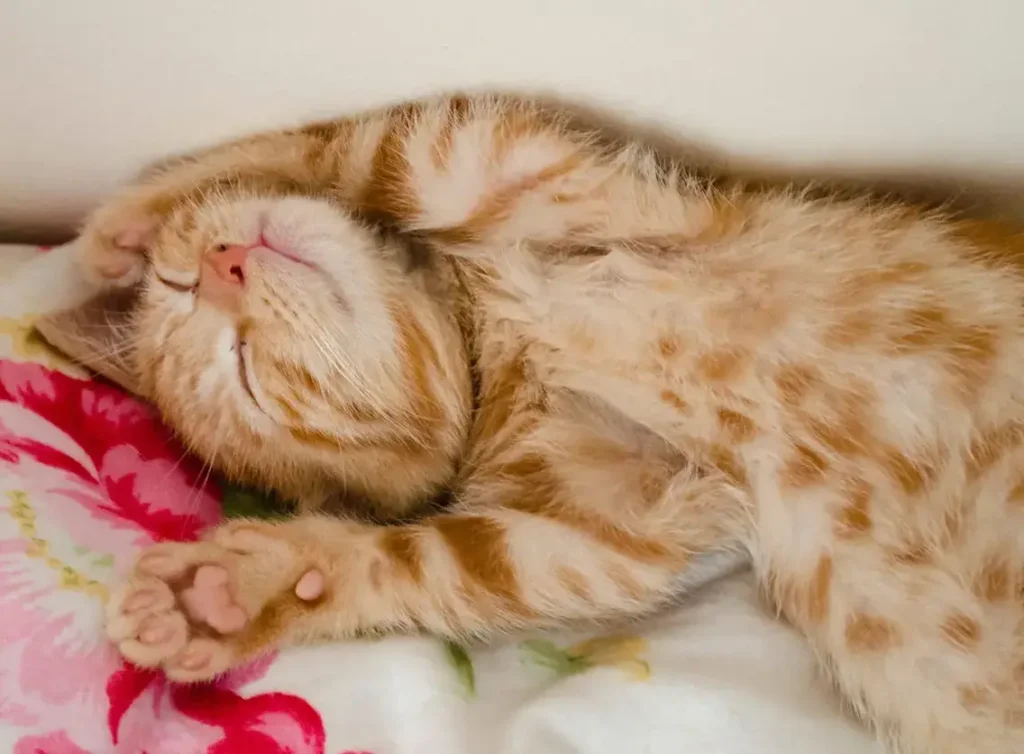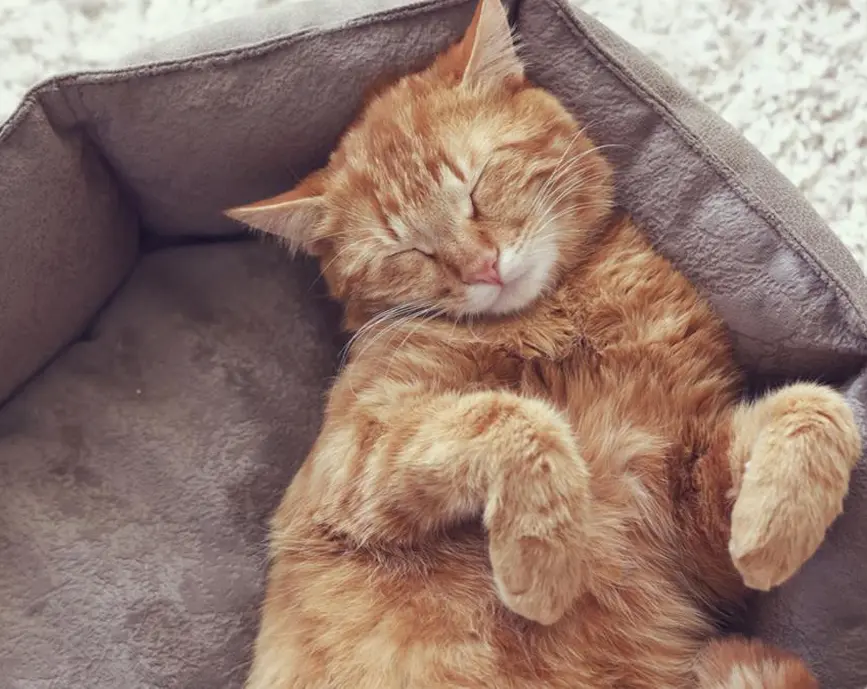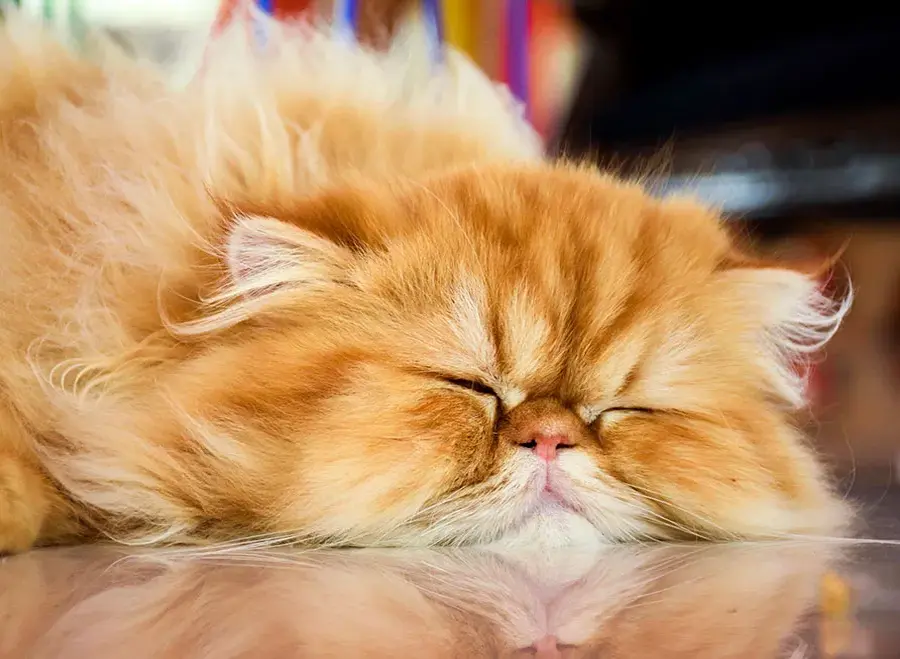Why Do Cats Sleep So Much?

Introduction
A. Definition of the phenomenon: Cats’ propensity for sleep
Cats are known for their remarkable ability to sleep for long periods. This phenomenon, often referred to as “cats’ propensity for sleep,” means that cats spend a significant portion of their time resting or sleeping.
B. Intriguing statistics about cats’ sleep patterns
Were you aware that cats can snooze for as long as 16 hours each day? That’s about two-thirds of their entire day spent snoozing! This may seem surprising, but it’s a common behavior among our feline friends.
C. Purpose of the article: Understanding the reasons behind cats’ extensive sleep
Have you ever wondered why cats sleep so much? Understanding the reasons behind their extensive sleep is the purpose of this article. By exploring the factors that influence cats’ sleep patterns, we can gain insight into their behavior and habits.

Evolutionary Perspective
A. Cats’ ancestry: Hunters in the wild
Thousands of years ago, cats’ ancestors prowled the wild, hunting for their meals. Whether it was stalking a mouse or chasing a bird, these wild cats needed sharp senses and quick reflexes to catch their prey.
B. Energy conservation as a survival strategy
Cats, both wild and domestic, have evolved a clever survival strategy: conserving energy. By sleeping for long stretches, cats can preserve their energy for when they need it most, like when they’re hunting or defending their territory.
C. Comparison with wild feline species: Lions, tigers, and cheetahs
While our house cats may seem lazy compared to their wild relatives like lions, tigers, and cheetahs, they share a similar behavior when it comes to sleep. Even these big cats in the wild spend a significant amount of time resting and conserving their energy between hunts.
D. Genetic predisposition to conserve energy
It’s not just about laziness; cats have a genetic predisposition to conserve energy. Their bodies are built to efficiently use energy, allowing them to survive on smaller amounts of food and rest for longer periods.

Physiological Factors
A. Unique sleep architecture of cats
Cats have a fascinating sleep pattern that differs from humans. They go through different stages of sleep, including light sleep and deep sleep, just like we do. However, their sleep cycles are much shorter, lasting about 30 minutes on average.
B. REM (Rapid Eye Movement) sleep in cats
During REM sleep, cats experience vivid dreams, just like humans do. You might notice your cat twitching or moving its paws while sleeping deeply. This stage of sleep is essential for their brain health and processing of memories.
C. Body temperature regulation during sleep
Cats are masters at regulating their body temperature, especially during sleep. They can conserve heat by curling up into a tight ball or stretching out to release excess warmth. This ability helps them stay comfortable and conserve energy while resting.
D. Endocrine system and sleep-wake cycles in felines
The endocrine system, which includes hormones like melatonin and cortisol, plays a crucial role in regulating cats’ sleep-wake cycles. These hormones help signal to the body when it’s time to sleep and when to wake up. Cats’ bodies are finely tuned to respond to these signals, ensuring they get the rest they need to stay healthy and active.
Environmental Influences
A. Domestication and its impact on cats’ sleep
When cats became domesticated pets, their sleep habits changed. Unlike their wild ancestors, who needed to be alert and active to survive, domestic cats have adapted to a more relaxed lifestyle, which includes more sleep.
B. Influence of indoor versus outdoor living
Whether a cat lives indoors or outdoors can significantly affect its sleep patterns. Indoor cats may have fewer opportunities for physical activity, leading to more sleep to pass the time. Outdoor cats, on the other hand, might sleep less as they explore their environment and hunt for prey.
C. Role of environmental enrichment on sleep duration
Providing environmental enrichment, such as toys, scratching posts, and climbing structures, can positively impact a cat’s sleep duration. Engaging in activities during the day can help cats expend energy and feel more fulfilled, leading to better quality sleep at night.
D. Impact of social dynamics within multi-cat households
In households with multiple cats, social dynamics can influence how much each cat sleeps. Some cats may feel more comfortable and secure in the presence of other feline companions, leading to longer periods of rest. However, conflicts or competition for resources within the household can disrupt sleep patterns for some cats.
Behavioral Considerations
A. Hunting behavior and its correlation with sleep
Cats are natural hunters, and their hunting instincts can influence their sleep habits. Even though domestic cats may not need to hunt for survival, they still retain this behavior, which can affect how much they sleep.
B. Catnaps: Understanding short sleep bouts in cats
Cats are masters of the catnap—a short period of sleep that helps them recharge throughout the day. These quick naps allow cats to conserve energy while staying alert to potential prey or other stimuli in their environment.
C. Playtime and its influence on sleep quality
Engaging in playtime activities with your cat can have a positive impact on their sleep quality. Physical and mental stimulation during play helps cats expend energy, leading to more restful sleep when it’s time to rest.
D. Stress and its effect on sleep duration and quality
Just like humans, cats can experience stress, which can affect their sleep duration and quality. Changes in their environment, conflicts with other animals, or even loud noises can cause stress in cats, disrupting their normal sleep patterns.
Health and Age Factors
A. Aging and changes in sleep patterns
As cats get older, they might undergo alterations in their sleeping routines. Older cats tend to sleep more and may have difficulty sleeping through the night due to factors like arthritis or cognitive decline.
B. Common health issues affecting sleep in cats
Certain health issues, such as urinary tract infections or dental problems, can disrupt a cat’s sleep. Pain or discomfort from these conditions can make it difficult for cats to settle down and get restful sleep.
C. Impact of nutrition on sleep quality
Nutrition plays a vital role in cats’ overall health and sleep quality. Providing a balanced diet that meets their nutritional needs can help promote better sleep and overall well-being.
D. Veterinary considerations for addressing sleep-related concerns
If you notice changes in your cat’s sleep patterns or suspect they may be experiencing sleep-related issues, it’s essential to consult with a veterinarian. They can help identify any underlying health problems and provide recommendations for improving your cat’s sleep quality and overall health.
Conclusion
A. Recap of the main points discussed
Throughout this exploration, we’ve uncovered various reasons why cats sleep so much. From evolutionary adaptations to physiological factors and environmental influences, we’ve delved into the fascinating world of feline sleep behavior.
B. Emphasis on the multifaceted nature of cats’ sleep behavior
It’s important to recognize that cats’ sleep behavior is multifaceted, influenced by a combination of factors including their biology, environment, and individual characteristics. Understanding this complexity helps us appreciate the uniqueness of each cat’s sleep habits.
C. Future research directions and potential applications in feline health and welfare
Looking ahead, there’s still much to learn about cats’ sleep patterns and how they impact their health and well-being. Future research could explore new insights into feline sleep behavior, leading to improved strategies for promoting better sleep and overall feline welfare.
People also ask
Is it normal for a cat to sleep all day?
Yes, cats are crepuscular animals, meaning they are most active during dawn and dusk, so sleeping during the day is normal for them.
Why do house cats sleep so much?
House cats sleep a lot to conserve energy and because they don’t need to hunt for food like their wild counterparts.
Should I let my cat sleep so much?
Yes, it’s important to let your cat sleep as much as they need to maintain their health and well-being.
Do cats get sad when you leave?
Some cats may experience separation anxiety when their owners leave, but it varies depending on the cat’s personality and bond with their owner.
Do cats ever get bored?
Yes, cats can get bored, especially if they don’t have enough mental and physical stimulation in their environment.
Do cats recognize their owners?
Yes, cats can recognize their owners through their scent, voice, and appearance.



